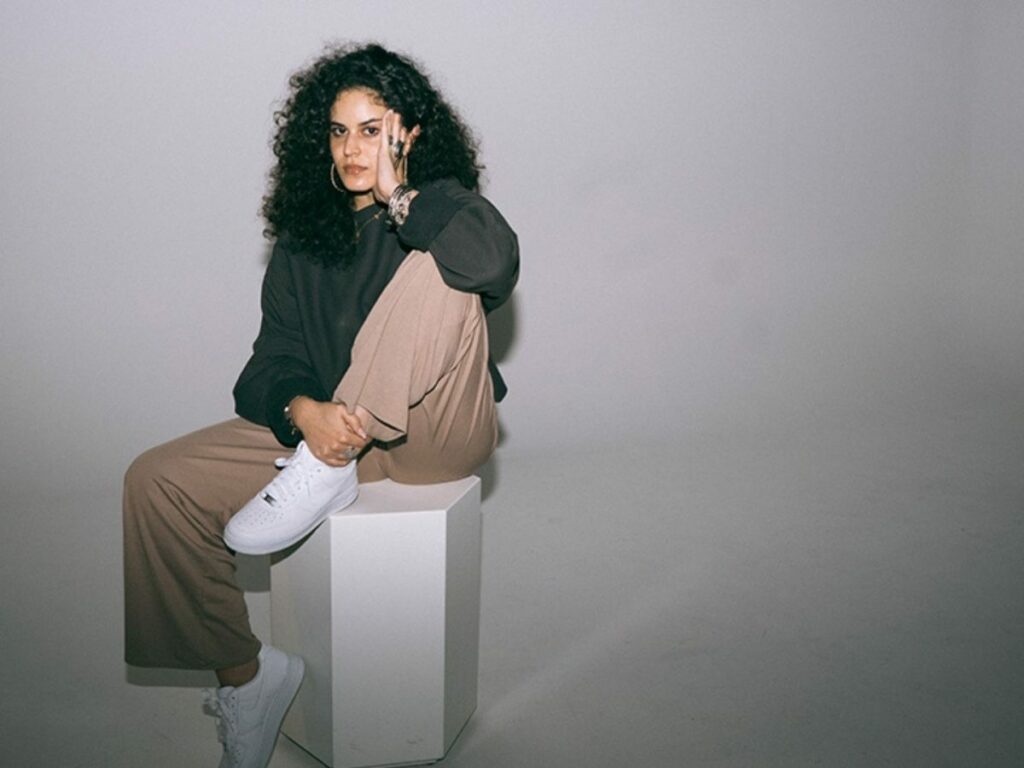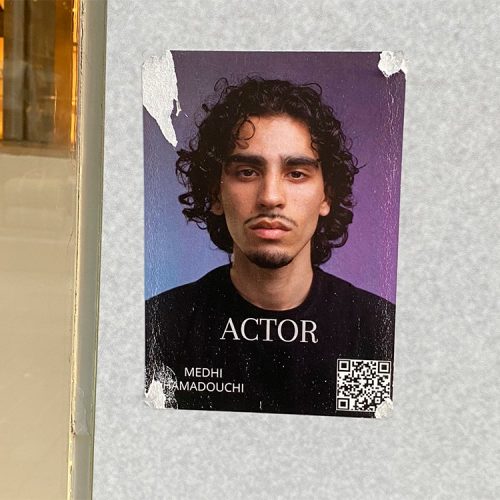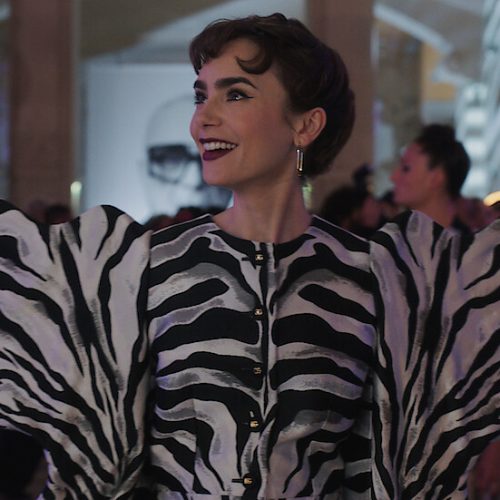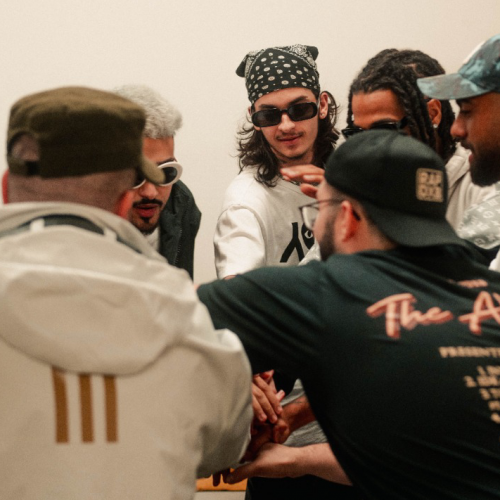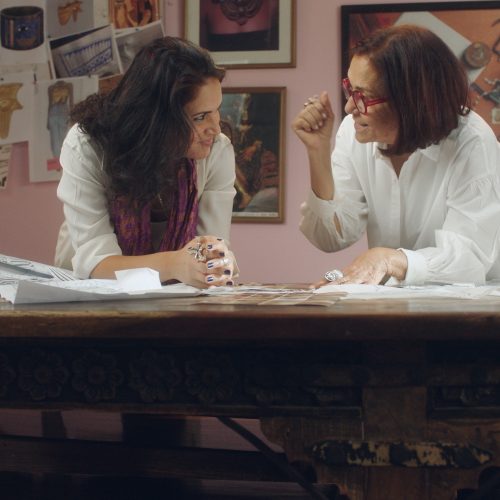Hip-hop is an increasingly popular genre across almost the entirety of the Arab World. Still, Sudan isn’t necessarily the first country that comes to mind when thinking of the region’s bustling rap scene. But things are slowly changing for the Northeast African country, especially with the help of skilled sonic ambassadors like Cairo-based MC Nadine El Roubi.
The Sudanese singer, who also happens to be a music journalist, lives and breathes music, documenting each step of her ascent towards global recognition for her sheer talent and skills on her official Twitter account.
Bringing fresh and underrepresented narratives to life through each one of her tracks, El Roubi is also known for being vocal on what matters to her the most. Never shying away from putting her female perspective at the forefront of her music, whatever the beat, the rising star never misses an opportunity to demonstrate her assortment of talent through sharp bars, scarring rhymes, and meaningful lyrics — a recurring element in the Sudanese songwriter’s musical identity that we are about to witness again through her latest release.
Titled Freestyles PT I, it is the young rapper’s first sonic offering since the new year. Debuting today, the artist strings several different freestyle verses, shared over time, all together on one track only. Owing to the artist’s own words, the new track is meant to be received and understood as “a mixtape, but on one ten-minute long song.”
To celebrate the launch of her new single, we shot over some questions to the ever-defying artist to learn more about her first steps in the industry, her creative process, as well as future plans. Ladies and gentlemen, meet Nadine El Roubi.
Where does your story with music begin?
My story with music began from childhood. My dad is a DJ and would take me with him to clubs. I’d be sitting on the stand next to the decks while he played. It’s also apparently how I learned my first swear word. But music was always playing around the house, in the car. I played piano for 10 years, and violin for a little bit too. I’ve also been singing since I was a kid— I performed for the first time at like eight-years-old at a high school talent show.
What pushed you into pursuing rap in particular?
I really fell in love with hip-hop as an art form in university between 2013 and 2016. A$AP Rocky, Kanye West, Schoolboy Q— I became obsessed with how much rappers could say in such a short amount of time and the breadth of themes they could touch upon. I remember in around 2014 and 2015 I wrote an essay on Jay-Z and Kanye West’s No Church in the Wild for a university class.
It was around 2015 and 2016 that I started really getting into the idea of rapping myself. I was writing things for myself and not showing anyone, freestyling with a couple of friends for fun. So the core desire was always there. It was when I met Sudanese rappers like MaMan, Jaily, and AKA Keyz in 2018 though, that really pushed me into believing I could do it myself.
You’re very proactive and engage with all aspects of the industry, from being a performer to being a music journalist as well. What insight does that bring you?
Having the blessing to write about music with SceneNoise definitely taught me a lot about both making music and the business side of music.
On the business side, it helped me understand the best way to approach publications for my own music: What information would be useful to them, how I should describe my music to inspire an interesting angle for a story… It put a lot in perspective.
On the music-making side – from analyzing and interpreting other people’s music, and observing how people were engaging with their music on the SceneNoise page — it gave me an idea of what people like and what they listen for. It’s very insightful. I love writing about music and probably always will – but I definitely enjoy making music more.
What importance does writing hold to you as both a journalist and an artist?
Writing is everything to me. I read a lot growing up. Journaled since before I was 10. Writing always has and always will be the way I make sense of the world.
What does the process of making music solo, and independent, look like?
The process changes with each song, but mostly, when I’m by myself, it’s about sitting down, absorbing a beat, and getting lost in the process of writing. Freestyling melodies, recording things on my phone or directly into Logic…
I’ve had the privilege and pleasure of making music with Kubbara, a friend of mine who is an incredibly talented musician, producer, and engineer. Working with him has been amazing because he has an incredible ear and vast archival knowledge of different genres. So he really gets the sound that I’m going for. But I would love to get in the studio with him and a bunch of other musicians and make music from scratch, like Ahmed Hossam, Mallawany, Wegz, Mickey.. That would be a dream come true.
Being independent though, something like that is hard. Because you want to pay people for their time and work if you can. And at the moment I’m not really in that position, to be able to pay a bunch of different musicians for a session or to pay for hours of studio time. I only want a label for the funds and resources really. At the moment I don’t see any pros to doing this independently. It’s exhausting, draining, and long. I want a record deal, fact.
In your new track, you admit you despise being labeled a female rapper. Can you tell us more about that?
Gender is being used to qualify every art form. It’s just frustrating because rap, rapping, hip-hop… it’s a genderless genre. It’s just a medium of expression. A skillset. Me being a woman should have nothing to do with it. I don’t want to be anyone’s favorite “female rapper.” I want to be someone’s favorite rapper, period.
Your track is unique in that it mixes verses from over the years in a 10-minute-long song. How did the idea come to you?
The whole thing was actually my manager (Megatronic’s) idea. For ages, she’s been like “Yo, your freestyles do really well. People love them. We should make a mixtape out of them.” I was always kind of like, “yeah…sure.” It felt lazy to just repurpose old content. But then I tried sequencing them with voice notes and messages I’ve gotten from friends over time, and it sounded dope. It felt way more intentional and story-like.
I sent the sequence over to Meg, and she loved it, but felt it needed to be tied together more smoothly. So she enlisted the help of a friend of hers, DJ John Vincent, who’s worked with another artist on her roster, Desta French. He mixed the verses and voice notes together in the way you hear today. To me it sounds like I’m listening to my shit in the car, getting a bunch of voicemails along the journey. I love it.
You’ve only released singles so far, but when can we expect a long sonic statement from you?
I’m releasing my first ever EP in October. It’s going to be called Triplicity. It’s five songs. I’m very excited for that to be out, too.





